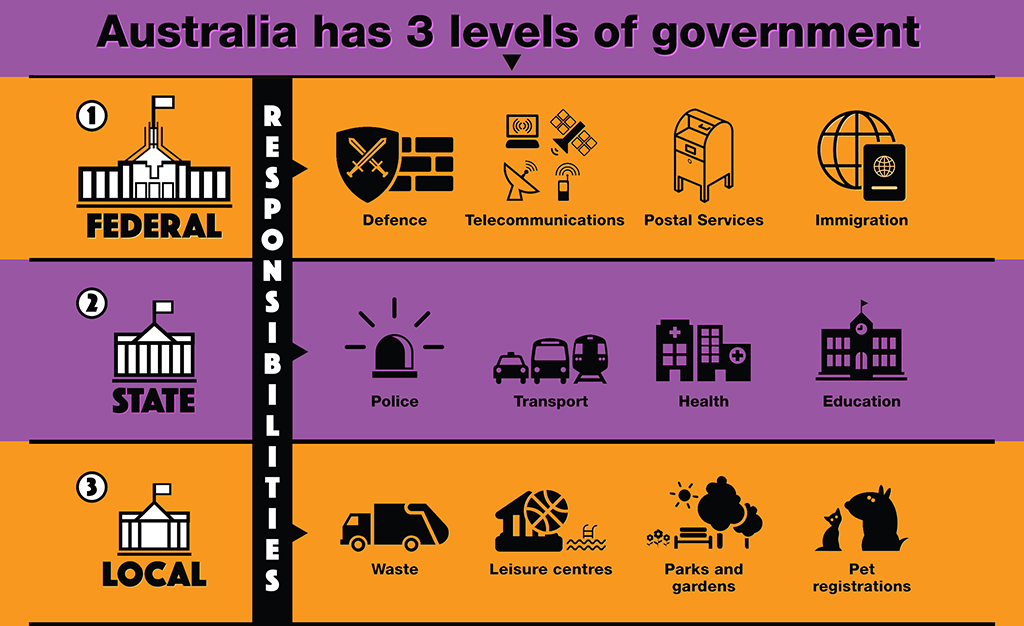Why councils exist
Local government is the third level of government in Australia and has a significant impact on the lives of all Victorians.
In Victoria, local government is established by an Act of state parliament – the Local Government Act 2020 – which specifies council powers, duties and functions.
The legal basis for councils is established under the Constitution Act 1975.

We thank the City of Greater Dandenong for permission to use this graphic explaining the role of local government.
Australia has three levels of government
- Federal government has responsibilities including defence, telecommunications, postal services and immigration.
- State government has responsibilities including the police, transport, health and education.
- Local government has responsibilities including waste management, leisure centres, parks and gardens, and pet registrations.
Council powers
Local government is recognised in the Victorian Constitution 1975 as a:
‘distinct and essential tier of government consisting of democratically elected councils having the functions and powers that the Parliament considers are necessary to ensure peace, order and good government of each municipal district’.
Councils operate within a legislative framework established by the Victorian Parliament through the Local Government Act 2020, which specifies local government powers, duties, roles, responsibilities and functions.
Learn more about
